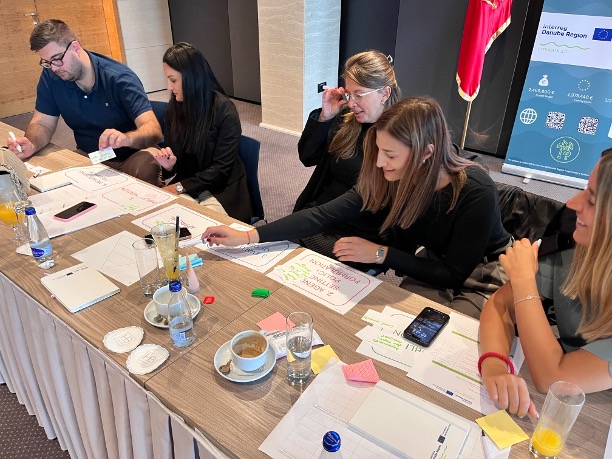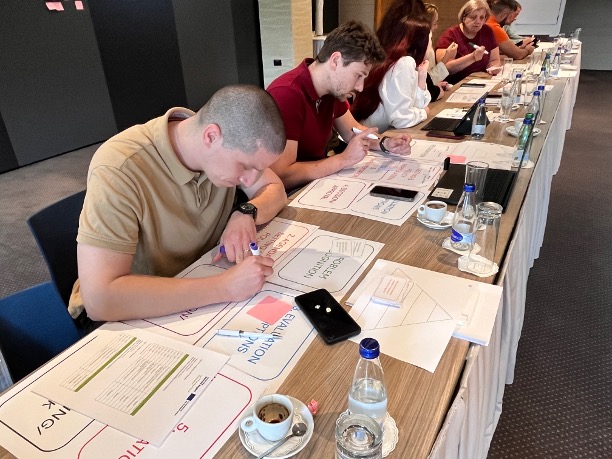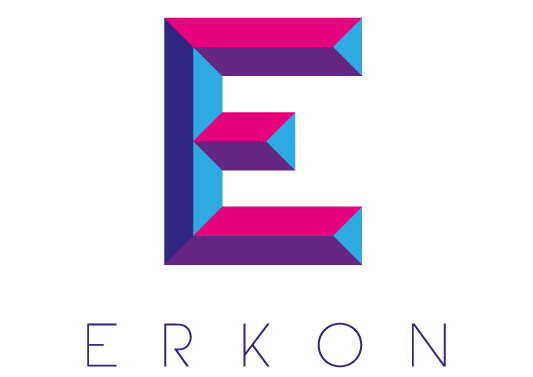Power mapping in Citywalk 2.0
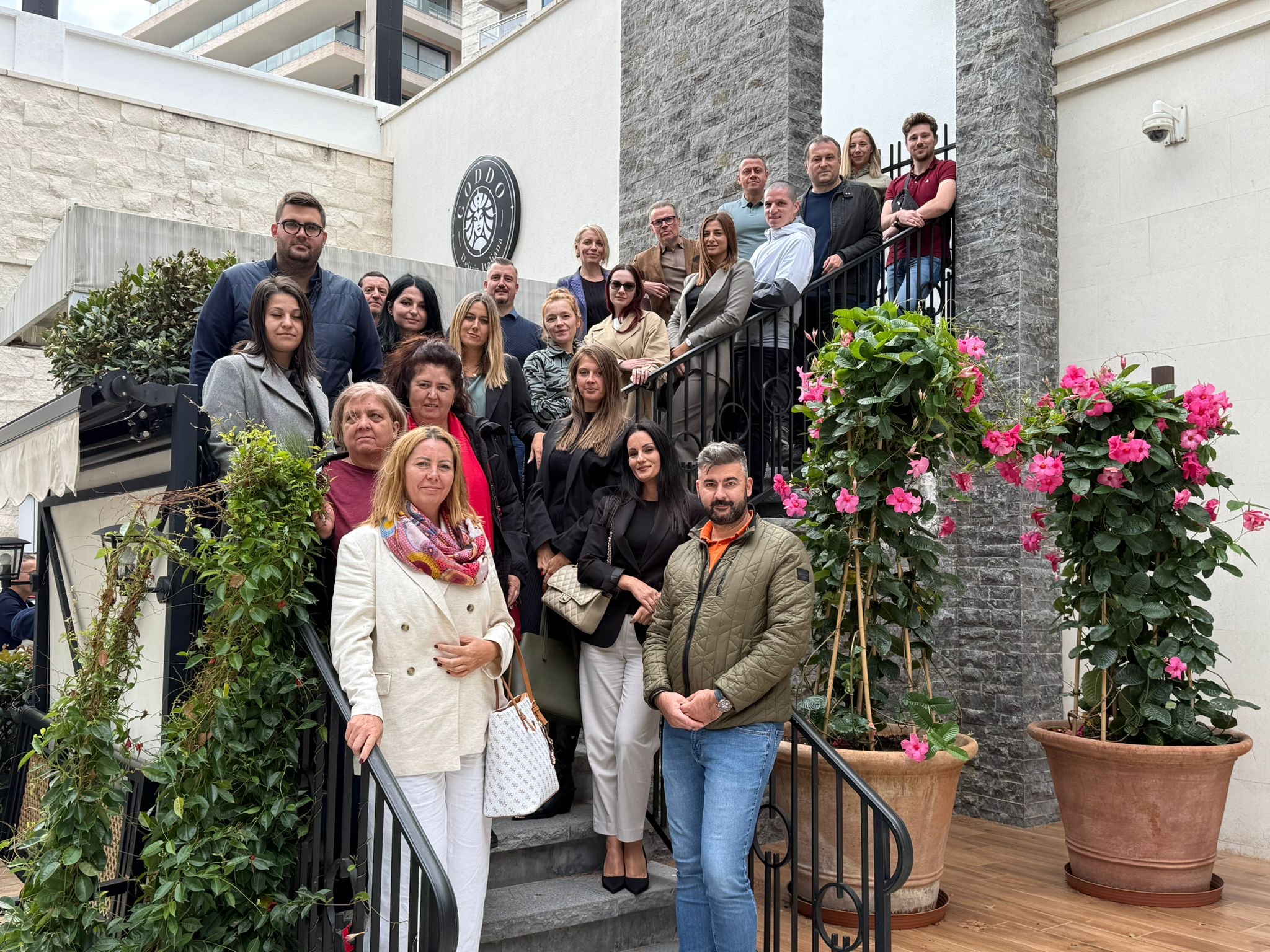
The main goal of the CityWalk2.0 project is to promote energy transition in the transport sector by drastically reducing the energy use of urban transport. The quickest, most efficient and cheapest way is to shift from extremely energy-intensive car-based mobility to active forms of mobility (walking, cycling), micromobility and public transport. The project is funded through the Interreg Danube Region Programme 2021-2027 and gathers 10 municipalities from various European countries.
On the 4th Citywalk 2.0 Partner Meeting held in Budva (Montenegro) in early October, Erkon d.o.o. prepared and held a workshop on behalf of the North-West Croatia Regional Energy and Climate Agency (REGEA).
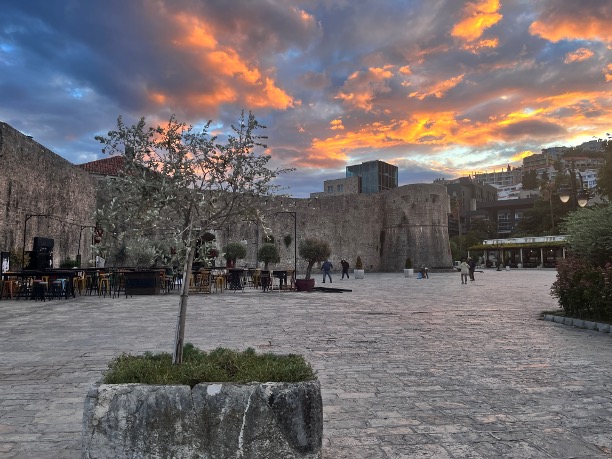
We designed and facilitated a Decision Journey Mapping workshop to help the city representatives see which entities impact the decisions related to urban mobility in their local contexts. Key elements of CityWalk 2.0 include redesigning streets to encourage active mobility and discourage car use, changing the travel behaviour of citizens, and most challenging – strengthening the political will and commitment the decision-makers to implement the transformation.
Choices made within a municipality don’t occur all at once. When a city plans changes related to mobility — such as creating a new network of cycling lanes or adjusting public transport routes — the outcome isn’t decided in a single moment. Instead, it progresses through multiple phases, beginning with identifying an issue and continuing through implementation and evaluation. This step-by-step path is influenced by different entities, departments and persons. Identifying the actual power players is not always simple and obvious. Therefore, exercises such as this one can help in defining the right strategy towards strengthening political commitment and design targeted actions.
